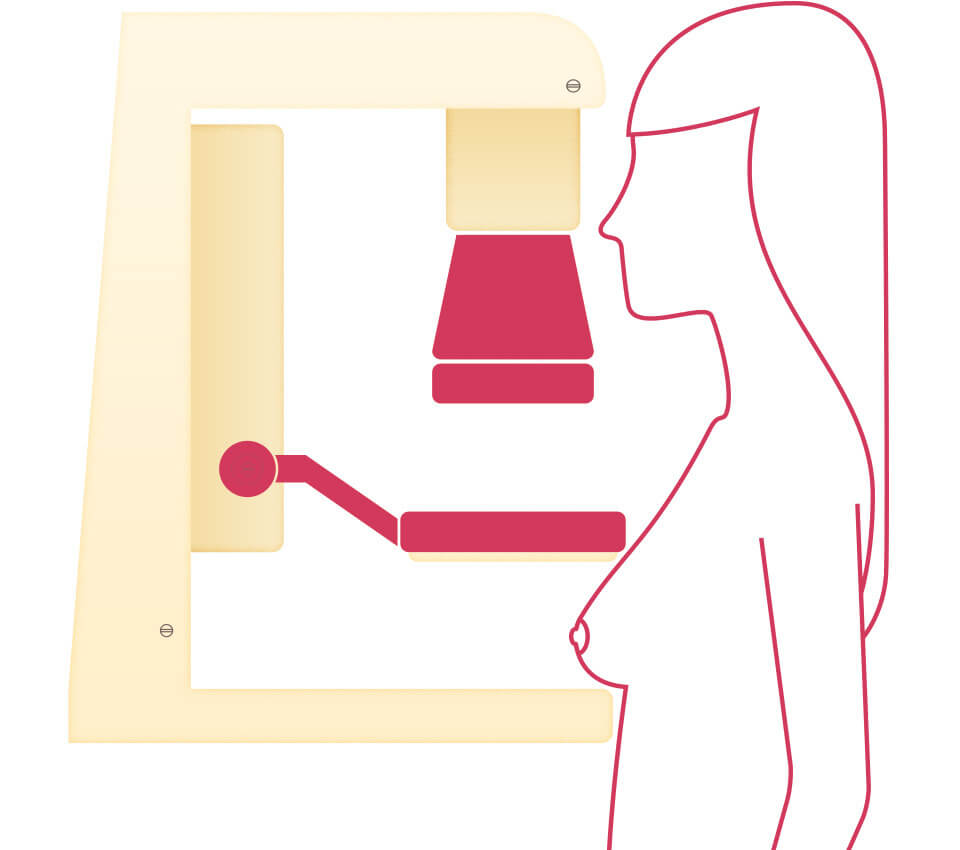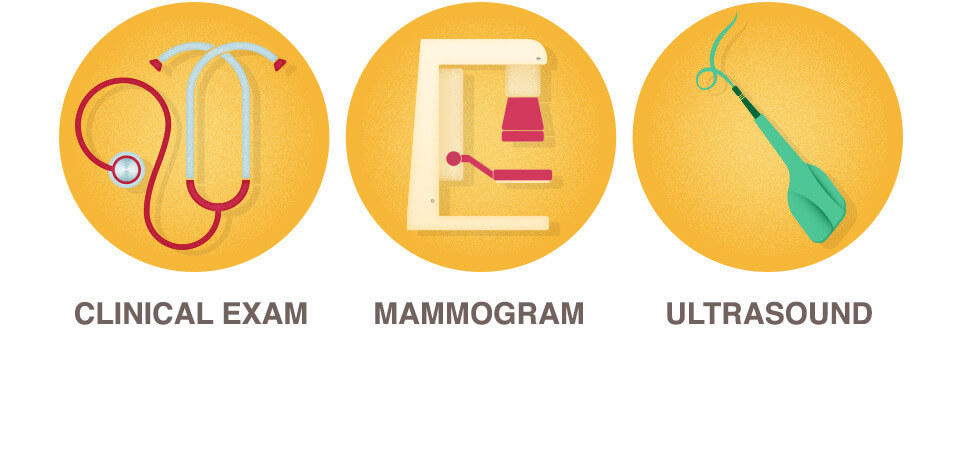Mammogram
What Is A Mammogram?
A mammogram is an x-ray that allows a qualified specialist to examine the breast tissue for any suspicious areas. The breast is exposed to a small dose of ionizing radiation that produces an image of the breast tissue.

Why Do I Need A Mammogram?
Mammograms can often show a breast lump before it can be felt. They also can show tiny clusters of calcium called micro-calcifications. Lumps or specks can be caused by cancer, fatty cells, or other conditions like cysts. Further tests are needed to find out if abnormal cells are present.
How Do I Schedule A Mammogram?
Many women encounter barriers when trying to schedule a mammogram. Often, things like concerns with cost or not knowing who to call can be discouraging when setting up an appointment. Read How to Schedule a Mammogram to learn the essential information you need so that you do not miss out on this important exam.
Read How to Prepare for a Mammogram for tips on how to prepare before and on the day of your mammogram appointment.
Mammogram 101 Guide
Mammograms can be stressful and even a bit scary. But you can prepare yourself with critical information before you get a mammogram. This free resource answers what you should do before, during, and after your mammogram screening.
Get the Free Guide
Recommendations For All Women:
- Women 40 and older should have mammograms every 1 or 2 years.
- Women who are younger than 40 and have risk factors for breast cancer should ask their healthcare professional whether mammograms are advisable and how often to have them.
Even women who have no symptoms and no known risks for breast cancer should have regularly scheduled mammograms to help detect potential breast cancer at the earliest possible time.
What Happens If My Mammogram Results Are Abnormal?
If the mammogram shows an abnormal area of the breast, your doctor will order additional tests offering clearer, more detailed images of that area.
Although lumps are usually non-cancerous, the only way to be certain is to perform additional tests, such as an ultrasound or MRI. If further tests show that the mass is solid, your radiologist may recommend a biopsy, a procedure in which cells are removed from a suspicious area to check for the presence of cancer.

Abnormal Mammogram Resource
If you’ve had an abnormal mammogram, download this free list of specific questions to ask your doctor at your next appointment. Be prepared to understand your results and empowered with critical information about your next steps.
Get the Free ResourceWhat Is Dense Breast Tissue?
Every breast has a different mixture of breast tissue or variations of amounts of fatty and fibroglandular tissue. Broadly, breast tissue may be referred to as non-dense (more fatty) and dense (less fatty with more fibroglandular tissue). Dense breast tissue simply means there is more fibroglandular tissue, which appears white on a mammogram. When a patient has dense breasts, a mammogram will show that a greater amount of the breast is filled with dense breast tissue than fatty tissue.
How Do I Know If I Have Dense Breasts?
Having a mammogram is the best way to find out if dense breast tissue is present. A radiologist (doctor who views mammograms) will analyze the ratio of fatty tissue to dense tissue and determine the level of breast density. Breast density is measured and reported in a mammogram report.
On a mammogram, fatty tissue appears dark, while dense breast tissue appears white. Dense breast tissue isn’t transparent like fatty tissue, often making it difficult to see through.
Women with high density reported from having a mammogram may be at a slightly higher risk than women with low or normal density to get breast cancer. Additional imaging studies such as a breast MRI might be done for high density.
Dense Breasts Q&A Guide
According to the National Cancer Institute, nearly 50% of all women age 40 and older have dense breasts. This free guide answers frequently asked questions about dense breasts so you can be your own best advocate for your health.
Get the Free GuideNote: If you’ve received the COVID-19 vaccination recently, read about why you may want to delay your screening mammogram.
Materials on this page courtesy of National Cancer Institute



